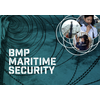Role of Private Security Companies in Combating Maritime Piracy
Private Security Companies (PSCs) play a crucial role in combating maritime piracy, especially in high-risk areas such as the Gulf of Aden, the Indian Ocean, and parts of the West African coast. The increase in piracy, particularly in the early 2000s, led to a higher demand for specialized security services.
Here's a detailed look at their roles and contributions:
1. Onboard Security Teams:
- Armed Guards: One of the most visible roles of PSCs is providing armed security personnel onboard vessels. These guards act as a deterrent, and their presence can significantly reduce the risk of a pirate boarding attempt.
- Unarmed Guards: In some situations, unarmed security teams are deployed to use non-lethal tactics and equipment to fend off pirates.
2. Protective Measures and Advisory Services:
- Risk Assessments: PSCs often conduct thorough risk assessments before a vessel enters high-risk waters. They analyze past incidents, current threat levels, and geopolitical situations to provide tailored advice.
- Route Planning: Advising on safer routes can help vessels avoid known piracy hotspots.
3. Training and Drills:
- Crew Training: Security companies provide training to ship crews on anti-piracy measures, response protocols, and the use of non-lethal defenses.
- Simulated Drills: Conducting piracy drills ensures that the crew is well-prepared in case of an actual attack.
4. Surveillance and Monitoring:
- Technology Integration: PSCs might deploy advanced surveillance systems, including radar, night-vision cameras, and tracking systems, to monitor surrounding waters for suspicious activities.
- Intelligence Gathering: Keeping abreast of piracy trends through intelligence networks helps in the anticipation and avoidance of threats.
5. Physical Security Enhancements:
- Hardening Measures: PSCs can recommend and help implement physical security measures such as barbed wire, water cannons, and fortified safe rooms (citadels) where crew members can take refuge during an attack.
6. Coordination with Authorities:
- Communication: PSCs maintain communication lines with national navies and coast guards to ensure a coordinated response in the event of an attack.
- Reporting: Timely reporting of piracy incidents to relevant maritime security centers and authorities.
7. Escort Services:
- Escort Vessels: Providing armed escort vessels to accompany cargo ships through high-risk areas.
Impact and Effectiveness:
- Deterrence Factor: The mere presence of armed security personnel on board has proven to be a significant deterrent. Many pirates prefer not to engage with vessels that show signs of robust security preparedness.
- Reduction in Successful Attacks: There has been a noticeable decline in successful pirate attacks and hijackings in regions where PSCs are actively engaged.
- Cost Implications: While hiring PSCs is an additional cost for shipping companies, it is often outweighed by the potential loss and disruption caused by a piracy event.
Challenges and Concerns:
- Regulation and Accountability: The use of armed guards raises questions about the regulation and oversight of PSCs. Ensuring that these companies operate within legal and ethical guidelines is crucial.
- Jurisdictional Issues: Different territorial waters have varying laws regarding the possession and use of firearms, which can complicate the operations of PSCs.
- Legal Liabilities: Issues surrounding the use of lethal force and the potential for human rights violations must be carefully managed.
In summary, Private Security Companies play a pivotal role in enhancing maritime security through a range of services and measures designed to deter piracy. Their effectiveness has helped in reducing the frequency and success rate of pirate attacks, thereby contributing to safer maritime operations globally. However, their role must be balanced with appropriate regulations and oversight to address the associated challenges and concerns.


